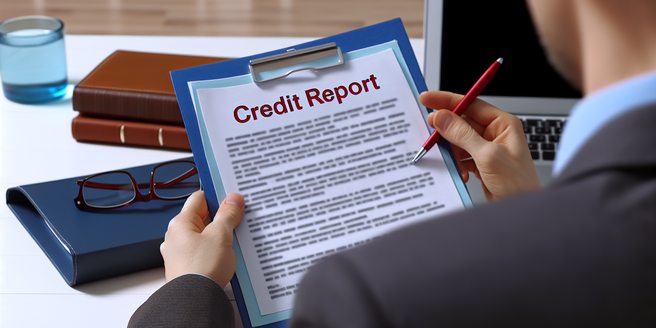Understanding the Basics of Credit Score
Your credit score is a numerical expression of your creditworthiness, based on an analysis of your credit files. It’s derived from your credit report information, typically sourced from credit bureaus. Understanding how credit scores are built and what affects them is the first step towards improving bad credit. Factors involved in credit score calculations include your payment history, credit utilization rate, length of credit history, credit mix, and new credit inquiries. It’s essential to know that maintaining an excellent history of on-time payments is crucial, as this factor contributes significantly to your credit score calculation.
Identifying the Causes of Bad Credit
Bad credit isn’t developed overnight. A variety of factors can contribute to a low credit score, including missed payments, high credit utilization rate, or an error in your credit reports. An important step towards credit improvement is identification and understanding of what’s causing your credit score to drop. Once you pinpoint what’s damaging your credit, that can serve as a starting point for making changes that will effectively improve your credit.
Monitoring Your Credit Report Regularly
Regular monitoring of your credit report cannot be overemphasized in the journey to improving your credit. It allows you to pick up on any mistakes or identity thefts promptly. It’s recommended you check your credit reports from the three major credit bureaus yearly. If there are any inaccuracies or disputable items, you can appeal to the credit bureau involved. Rectifying errors on your credit report can give your credit score a significant boost.
Start Paying Your Bills on Time
Late or missed payments have a drastic impact on your credit score. Therefore, an effective way to boost your credit score is by ensuring all your bills are paid promptly. Note that payment history accounts for 35% of your credit score in FICO models. Therefore, setting up automatic payments can be immensely helpful in never missing a due date.
Lowering Your Credit Utilization Ratio
Your credit utilization ratio, which is the balance of your credit accounts relative to your total credit limit, affects 30% of your credit score. Lowering this ratio can significantly improve your credit score. You can achieve this by either paying off your balances or increasing your credit limit. However, it’s advised not to use the latter option as an excuse to accumulate more debt.
Repaying Outstanding Debts
Having too many outstanding debts can hinder your credit score. The faster you can eliminate your debts, the higher your credit score will soar. Start with your highest interest rate debts and work your way down to the smallest. The snowball method, where you start by paying off your smallest debts, can also be effective.
Building a Solid Credit History
Building a solid credit history is key to improving a poor credit score. This involves taking on credit and handling it responsibly over time. Whether it’s a credit card, student loan, or a mortgage, making regular, on-time payments will help demonstrate you’re a reliable borrower, and in turn, improve your credit score.
Avoiding Unnecessary Credit Applications
It’s important to be aware that every time you apply for credit, a hard inquiry is made, which slightly brings down your score. Therefore, minimize credit applications to only when necessary. Very importantly, don’t borrow more than you can conveniently pay back.
Consider Credit Repair Services
Credit repair services can help to improve your credit score by addressing the negative aspects of your credit report. They work by disputing errors and negotiating with creditors on your behalf. However, it’s essential to do thorough research before committing to any credit repair service, as there are many fraudulent companies out there.
Maintaining Healthy Financial Habits
Ultimately, maintaining healthy financial habits is paramount to not just improving, but maintaining a good credit score. This includes budgeting regularly, saving, restricting spending on credit, and so on. Improving credit score is a marathon, not a race. It takes persistence and discipline. Get started now!


